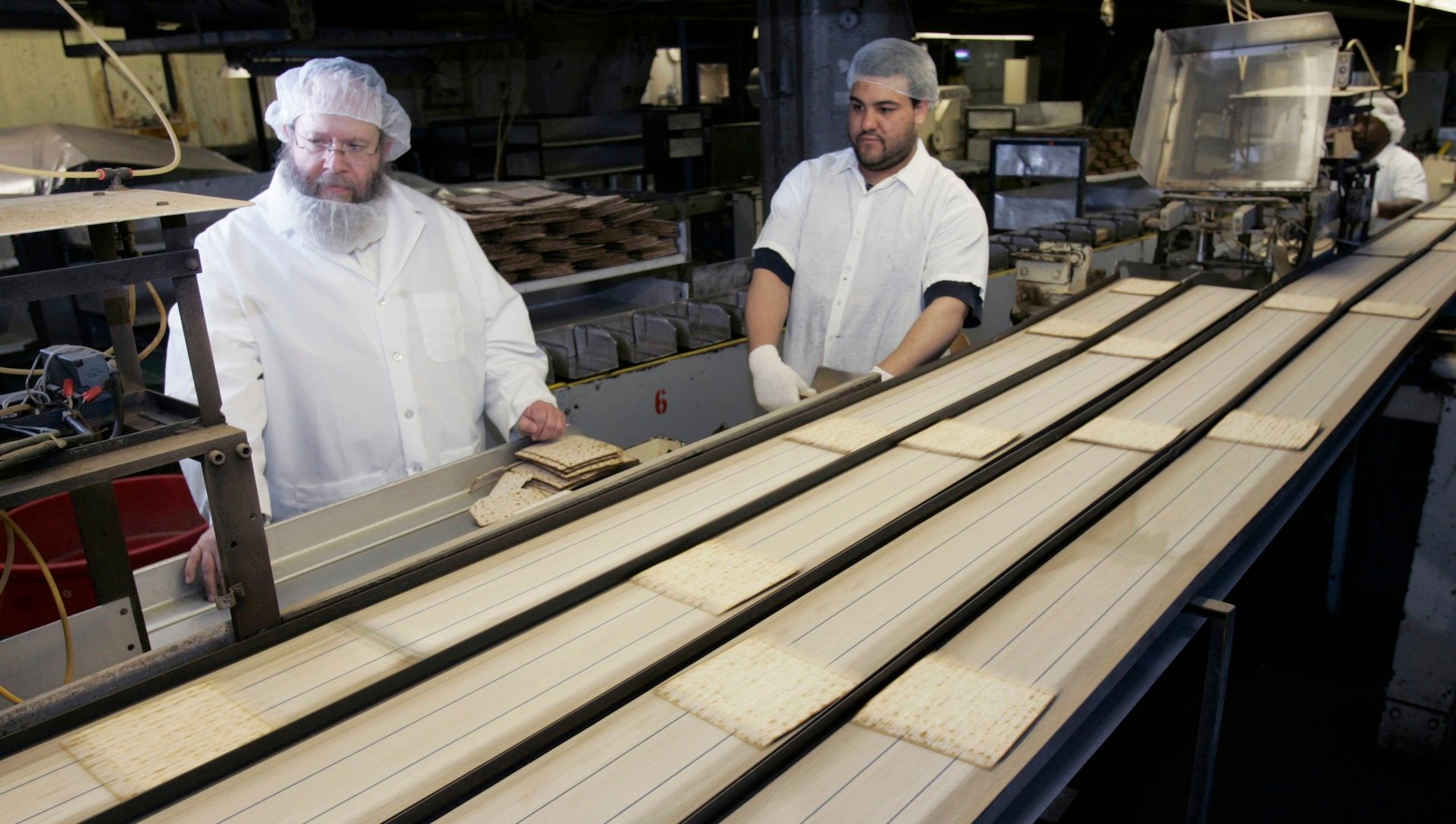Private equity thinks that kosher could be the new organic
Manischewitz, an iconic producer of kosher food, changed ownership yesterday for only the third time since the company was founded in 1888. It is being bought by Sankaty Advisors, a subsidiary of private equity firm Bain Capital, according to The New York Times (paywall). The company’s founding family first sold the firm to a different private equity firm in 1990, which sold it to a hedge fund in 2008.


Manischewitz, an iconic producer of kosher food, changed ownership yesterday for only the third time since the company was founded in 1888. It is being bought by Sankaty Advisors, a subsidiary of private equity firm Bain Capital, according to The New York Times (paywall). The company’s founding family first sold the firm to a different private equity firm in 1990, which sold it to a hedge fund in 2008.
The latest buyout comes a few days before Passover, the Jewish holiday the company is most associated with. But the company is trying to tap new sources of growth by moving beyond matzo, an unleavened bread required for the holiday, and into the mainstream.
“It’s a pretty powerful certification to be kosher, because it means you are holding your product to a very high standard,” newly appointed CEO Mark Weinsten told the New York Times (paywall). “Why is that not applicable to people who don’t keep kosher?”
If the kosher designation can be pitched as a byword for quality and care, it could garner more mainstream appeal, especially among health-conscious shoppers. The strategy first took shape with advertising efforts in 2006, and later with a push to place products on shelves outside of stores’ designated kosher sections. Under the strategy, matzo has been rebranded as a low fat, additive-free cracker instead of a religious product.
A company spokesperson told Bloomberg Businessweek that Manischewitz thinks its broths and macaroons could have the broadest appeal. The company’s range of macaroons now feature a wide range of flavors, including cappuccino chip, pistachio orange, and Rocky Road. Other products that have taken the company away from its traditional focus include a line of “Mediterranean Classics,” which includes sauces, soups, and fish products other than the Passover staple gefilte fish. The packaging on these products, even the unleavened offerings intended for Passover, avoids referring to anything overtly religious.
To some extent, consumers appear to buy into the products’ generally wholesome and healthy image, according to research from Mintel. Or, at least, the company’s sales have become less reliant on religious holidays than before—14 years ago, 80% of its sales were tied to Passover, which has fallen to less than half today.
The repositioning certainly makes sense in terms of market size. The estimated size of the matzo market in America is $86 million, with the overall market for kosher foods worth more than $13 billion. The market for natural and organic food, meanwhile, is worth more than $80 billion.
The problem is that relatively few of Manischewitz’s products are actually organic, and kosher food isn’t necessarily healthier as a rule. The products are produced under strict rabbinic supervision to make sure that they conform to the letter of Jewish law, but gaining an organic certification is something else entirely. Thus, the company will need to tread carefully as it tries to change the way that consumers think about kosher products.
This isn’t just about marketing, but the company’s long-term survival. Manischewitz’s dominance of its core matzo market is under threat. According to the Associated Press, imports from Israel and handmade options from smaller producers are stealing market share from domestic producers of boxed matzo. But this isn’t so worrying if shoppers—of all religious persuasions—are stocking up on kosher soups, sauces, and macaroons throughout the year.